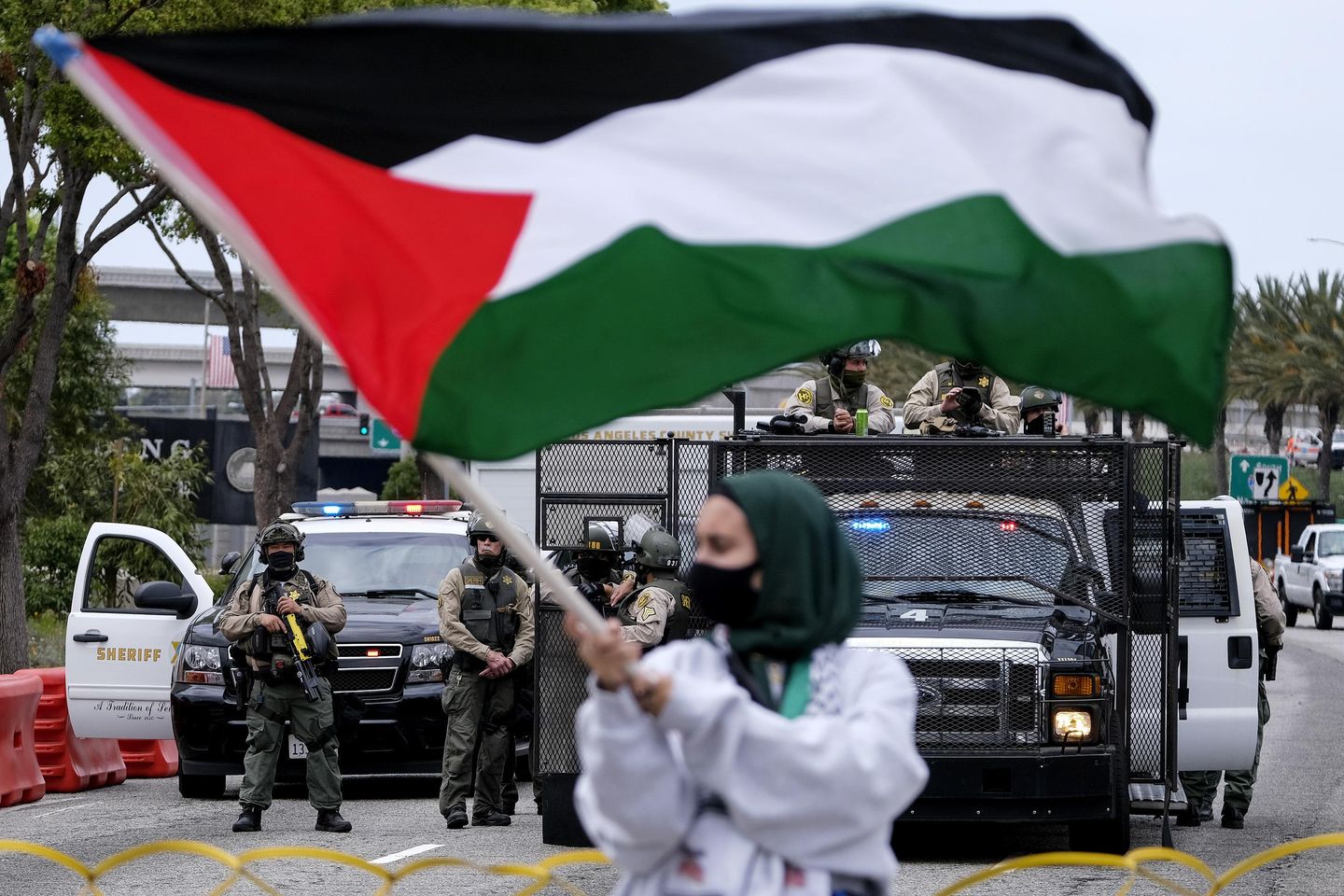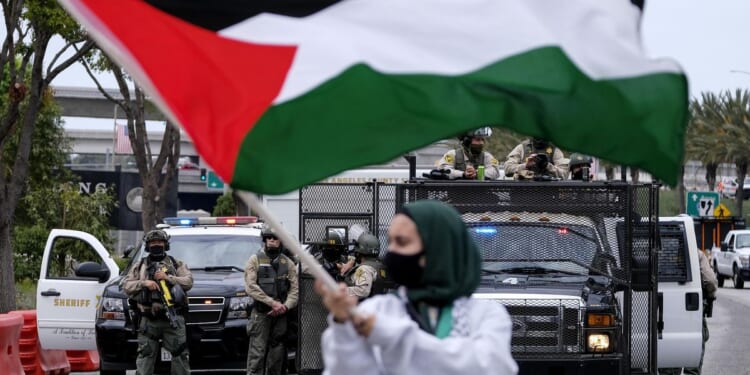
Brown University President Christina Paxson on Friday rejected demands by pro-Palestinian students on a hunger strike until the school spanks defense contractors and other companies doing business with Israel.
Shortly after 19 students launched a “Hunger Strike for Palestine,” Ms. Paxson replied with a letter saying, “I will not commit to bring a resolution to the February 2024 [Corporation of Brown University] meeting or any future meeting of the corporation.”
In the letter dated Friday and obtained by The Washington Times, she added, “The bar for divestment is high. It requires a demonstration that the university’s investments in the assets of specific companies create social harm and that divestment will alleviate that harm.
“Furthermore, we consistently reject calls to use the endowment as a tool for political advocacy on contested issues. Our campus is a place where difficult issues should be freely discussed and debated. It is not appropriate for the university to use its financial assets — which are there to support our entire community — to take a side on issues on which thoughtful people vehemently disagree.”
The Brown Divest Coalition said the students, who have appeared in photos wearing face masks and headdresses, will refuse to eat until the corporation places a resolution on its Feb. 8-9 meeting agenda to free its endowment of “companies that enable and profit from the genocide in Gaza and broader Israeli occupation.”
The group also demanded that the corporation let advocates argue their case and conduct a formal vote with coalition representatives present.
“They will hunger-strike until these demands are met in full,” said the coalition in a Friday statement.
The coalition said the resolution must be based on a 2020 report by the Advisory Committee on Corporate Responsibility in Investment Policies that recommended divesting from companies “that facilitate the Israeli occupation,” listing Volvo, Airbus, Boeing, General Dynamics, General Electric, Motorola, Northrop Grumman, Raytheon and United Technologies among its targets.
The students called for Brown to promote an “immediate cease-fire” in the Israel-Hamas war and won’t attend class during the hunger strike, according to The Brown Daily Herald.
BREAKING | President Christina Paxson P’19 P’MD’20 has declined to meet the demands of 19 student protestors who began a hunger strike earlier today. They demanded that the Corporation consider a divestment proposal in their meetings. https://t.co/V2Q66EpPT9
— Brown Daily Herald (@the_herald) February 3, 2024
The push for a divestment resolution comes with the Ivy League rocked by pro-Palestinian campus activism since the Oct. 7 Hamas massacre of Israeli civilians.
An opposite reaction came from Cornell University, where the undergraduate student government voted 16-4 Thursday to reject a resolution calling for the board of trustees to divest from companies “complicit in committing ‘morally reprehensible actions’” in Gaza, according to Legal Insurrection.
Word of the Brown hunger strike prompted a round of eye-rolling on social media, as chronicled by the Twitchy Team, including comments such as “No one cares” and “All these virtue-signaling kids will be stuffing their faces by 6 p.m.”
“If any current students at Brown follow me: Bring a grill and some beers to their protest, have a tailgate and become legends,” said State Freedom Caucus Network spokesman Greg Price on X.
While divestment campaigns have become a fixture on college campuses, hunger strikes are rare. The last such protest at Brown was reportedly held in 1986, when four students went without food to urge the university to divest from South Africa.
“The university, concerned about the students’ health and its own liability, disenrolled the students, who then stopped fasting and days later re-enrolled,” reported the Brown University Library.
A handful of students at McMaster University in Canada held a hunger strike in March in a bid to stop the college from installing four gas-powered generators, but gave it up after eight days, citing the no-eating pledge’s “negative impacts on health,” according to the CBC.
In her letter, Ms. Paxson said the Campus Life staff would be in contact with the student protesters and encouraged them to “attend to your own health and safety, as well as the safety of your colleagues.”
Campus tensions at Brown have been largely overshadowed by the post-Oct. 7 drama playing out at Harvard and the University of Pennsylvania, which saw their presidents resign amid criticism of their handling of campus antisemitism.
Still, Brown has seen its share of strife.
Ms. Paxson was blasted for omitting a reference to Jewish students in her prepared remarks after she heard from hecklers at a November vigil for a Palestinian student shot and wounded in Burlington, Vermont.
In December, 41 students were arrested on trespassing charges for a sit-in protest at University Hall organized by the Brown Divest Coalition calling for an end to the “Israeli military occupation.” The charges have not been dropped, and court dates are scheduled for Feb. 12 and 14.
Hamas, a U.S.-designated foreign terrorist organization, killed 1,200 Israelis, mostly civilians, and kidnapped 250 Israelis and foreigners in the Oct. 7 attack, which prompted Israel to declare war.
Roz Rothstein, CEO of the pro-Israel group StandWithUs, said Hamas, which has governed the Gaza Strip since 2007, has done the 2 million Palestinians there no favors.
“If these Brown University students really cared or understood [the] context of the Oct. 7th war, they would know that eliminating Hamas is good for Gaza’s Palestinians. They would certainly NOT go on a hunger strike ‘for divestment from #Israel’ like they are,” she said on X.

